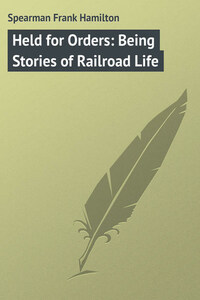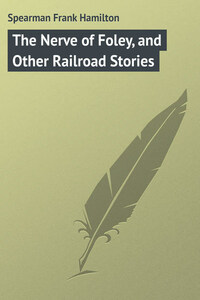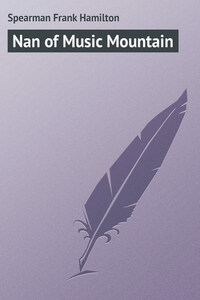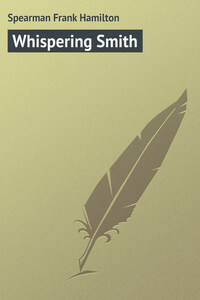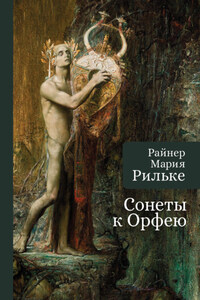The Switchman's Story
SHOCKLEY
"He's rather a bad lot, I guess," wrote Bucks to Callahan, "but I am satisfied of one thing – you can't run that yard with a Sunday-school superintendent. He won't make you any trouble unless he gets to drinking. If that happens, don't have any words with him." Bucks underscored three times. "Simply crawl into a cyclone cellar and wire me. Sending you eighteen loads of steel to-night, and six cars of ties. Blair reports section 10 ready for track layers and Mear's outfit moving into the Palisade Cañon. Push the stuff to the front."
It was getting dark, and Callahan sat in that part of the Benkleton depot he called the office, pulling at a muddy root that went unaccountably hot in sudden flashes. He took the pipe from his mouth, leaving his foot on the table, and looked at the bowl resentfully, wondering again if there could be powder in that infernal tobacco of Rubedo's. The mouthpiece he eyed as a desperate man might ponder a final shift.
The pipe had originally come from God's Country, with a Beautiful Amber Mouthpiece, and a Beautiful Bowl; but it was a present from his sister and had been bought at a dry-goods store. Once when thinking – or, if you please, when not thinking – Callahan had held a lighted match to the Beautiful Amber Mouthpiece instead of to the tobacco, and in the fire that ensued they had hard work to save the depot.
Callahan never wrote his sister about it; he thought only about buying pipes at dry-goods stores, and about being, when they exploded, a thousand miles from the man who sold them. There was plenty in that to think about. What he now brought his teeth reluctantly together on was part of the rubber tube of a dismantled atomizer; in happier post-Christmas days a toilet fixture. But Callahan had abandoned the use of bay rum after shaving. His razor had gone to the scrap and on Sunday mornings he merely ran a pair of scissors over the high joints – for Callahan was railroading – and on the front.
After losing the mouthpiece he would have been completely in the air but for little Chris Oxen. Chris was Callahan's section gang. His name was once Ochsner, but that wasn't in Benkleton. Callahan was hurried when he made up the pay roll and put it Oxen, as being better United States. I say United States because Callahan said United States, in preference to English.
Chris had been in America only three years; but he had been in Russia three hundred, and in that time had learned many ways of getting something out of nothing. When the red-haired despatcher after the explosion cast away with bitterness the remains of the pipe, Chris picked it up and by judicious action on the atomizer figured out a new mouthpiece no worse than the original, for while the second, like the first, was of rubber, it was not of the explosive variety.
Chris presented the remodelled root to Callahan as a surprise; Callahan, in a burst of gratitude, promoted him on the spot: he made little Chris foreman. It didn't bring any advance in pay – but there was the honor. To be foreman was an honor, and as little Chris was the only man on the yard force, he became, by promotion, foreman of himself.
So Callahan sat thinking of the ingenuity of Chris, reflecting on the sting of construction tobacco, and studying over Bucks's letter.
The yard was his worry. Not that it was much of a yard; just a dozen runs off the lead to take the construction material for Callahan to distribute, fast as the grade was pushed westward. The trouble at the Benkleton yard came from without, not from within.
The road was being pushed into the cattle country, and it was all easy till they struck Benkleton. Benkleton was just a hard knot on the Yellow Grass trail: a squally, sandy cattle town. There were some bad men in Benkleton; they didn't bother often. But there were some men in Benkleton who thought they were bad, and these were a source of constant bedevilment to the railroad men.
Southwest of the yard, where the river breaks sheer into the bottoms, there hived and still hives a colony of railroad laborers, Russians. They have squatted there, burrowed into the face of the bench like sand swallows, and scraped caves out for themselves, and the name of the place is Little Russia.
This was in the troublous days, when the cowboys, homesick for evil, would ride around Little Russia with rope and gun, and scare the pioneers cross-eyed. The cattle fellows spent the entire winter months, all sand and sunshine, putting up schemes to worry Callahan and the Little Russians. The headquarters for this restless gang were at Pat Barlie's place, across from the post office; it was there that the cowboys loved to congregate. To Callahan, Pat Barlie's place was a wasps' nest; but to Chris, it was a den of wolves – and of a dreader sort than Russian wolves, for Barlie's pack never slept.
The east and west section men could run away from them on hand cars; it was the yardmen who caught it, and it grew so bad they couldn't keep a switchman. About ten o'clock at night, after Number Twenty-three had pulled in and they were distributing a trainload of bridge timber, a switch-man's lantern would go up in signal, when
